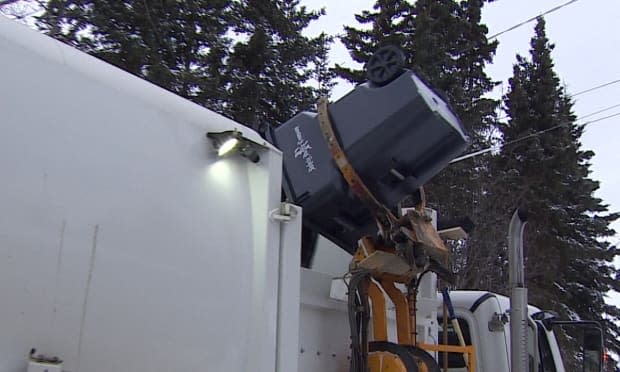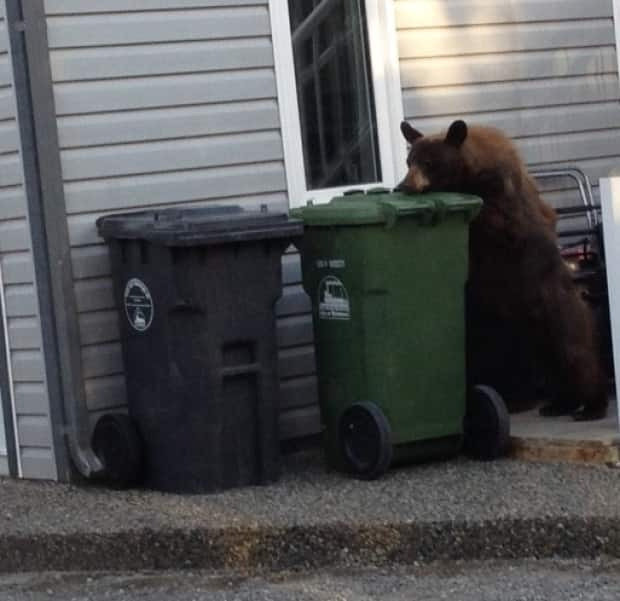Pilot project to test bear-resistant garbage carts in works for Yukon
The Yukon government, City of Whitehorse and advocacy group WildWise Yukon are working on a new pilot project to test bear-resistant garbage bins.
The carts could be going out to homes in the city and other communities as early as next month, said Heather Ashthorn, the executive director of WildWise.
The advocacy group has long lobbied for bins that could help prevent human-bear conflicts.
Two years ago, WildWise and the city were testing different types of bear-resistant residential garbage carts to see if any of them would fit in with Whitehorse's garbage and compost pickup system.
One of those models, made by Rehrig Pacific, seems to fit the bill, Ashthorn said this week.
She said the only difference from the city's current carts is that Rehrig Pacific's have a locking device which is easy to unlock manually, and automatically unlocks when it's hoisted up by a garbage truck.
"They have to be up in the air and upside down and then the weight of the garbage inside, and the gravity — the locks have a little kind of pendulum, a little gravity mechanism in them," she said.

"So when they're inverted, the latch opens."
She said 100 of the carts will be purchased, with 80 to be used in Whitehorse and 20 going to rural areas.
Decisions still have to be made about which homes should get the bins and whether they'll be for garbage or compost use, said Ashthorn.
The territorial government has information about areas where bears have most frequently been attracted by garbage, Ashthorn said.
Bears will go where they can get food, she said, but it will take time before there's enough evidence to determine if bear-resistant bins make a difference.
Reports of conflict between humans and bears in Yukon hit a five-year high in 2017, according to the territorial government, with at least 63 of the animals being killed that year.

That number had dropped to 33 bears destroyed in 2019 which the government said then was more typical.
Ashthorn is hoping the bins can be ordered this month and then arrive in January.
The California-based company is offering a discount on the bins to see how the locking device on them works in winter weather, she said.
"Any system will have some maintenance issues. So we do need a cold testing season for that. We're hoping we don't have to wait until next year," said Ashthorn.
"So our goal right now is to order sometime in December, probably have them here in January," she said.


